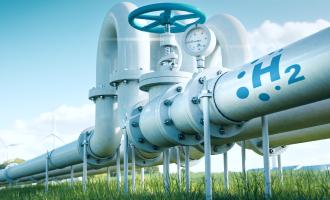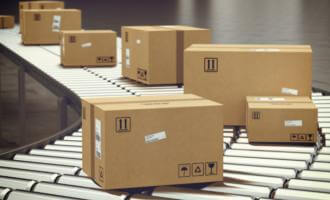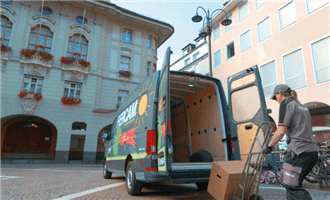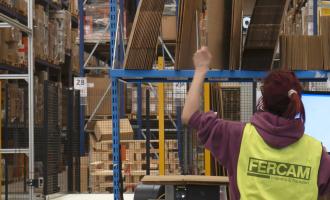
14 January 2021 - by: Eleonora Castagna
Biogas: heavy transport with organic fuel is already a reality
Producing LNG from renewable organic sources, as in the Biogas Wipptal plant, means transforming a waste product into the opportunity to bring the road transport sector closer to objectives of greater ecological sustainability right away
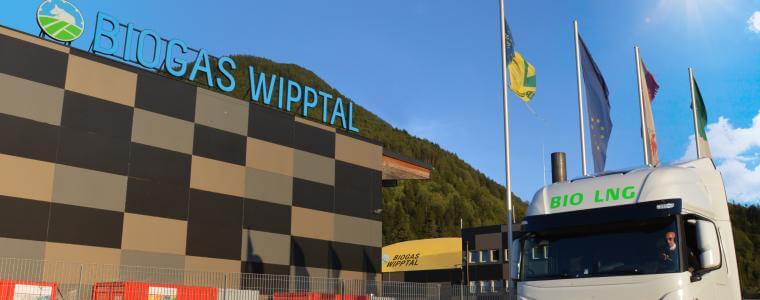
Every day, more than 5000 tons of animal manure are generated in the livestock farms along the Isarco Valley. Complete disposal on agricultural land, according to tradition, is no longer sustainable. But, despite the difficulties, 63 farmers in the area have managed to take advantage of the opportunity for innovation. A few years ago, the company Biogas Wipptal was founded, which - in collaboration with the Free University of Bozen/Bolzano, the University of Turin, the Tramin winery and the Zunhammer company - gave birth to the LIFE-OPTIMAL2012 project. The primary objectives of the project are the reduction of nitrates per hectare of agricultural land, the production of high-quality fertilizers for viticulture and fruit growing, and the possibility for participating farmers not to have to reduce their livestock numbers.
But fertilizer is not the only product that can be obtained from the processing of livestock manure. In the fermenter, the beating heart of the plant, the biomass introduced is transformed into biogas, thanks to the action of a complex microfauna that decomposes the organic substrate, converting it into gaseous matter rich in methane. In order to make fuel out of it, CH4 in the gaseous state must then be liquefied by cooling it to -164°C. To limit the production of harmful substances as much as possible, Biogas Wipptal has chosen to adopt an innovative system for the cooling phase, called "Sterling method", which avoids the use of additives such as nitrogen. In addition, the compressors used for liquefaction are powered only by the green electricity produced by the plant itself.
What is the process to transform livestock waste into energy, fuel and high quality fertilizers?
On the farms, the farmers take care of the collection of manure and slurry, which are then brought to the processing plant. Here the material is fermented, and the gas produced is transformed into electrical and thermal energy. The biogas plant has the capacity to treat 220 tons of sewage per day, generating 22500 kilowatt hours and sufficient thermal energy to dry the digestate. The latter is used partly for the fertilization of pastures, and partly (through a subsequent processing phase and reduction into pellets) for the fertilization of vineyards and orchards. In the process water is recovered, which is purified and pumped into the Isarco River. The whole process is monitored by dedicated software, in order to guarantee high quality standards throughout the process.But fertilizer is not the only product that can be obtained from the processing of livestock manure. In the fermenter, the beating heart of the plant, the biomass introduced is transformed into biogas, thanks to the action of a complex microfauna that decomposes the organic substrate, converting it into gaseous matter rich in methane. In order to make fuel out of it, CH4 in the gaseous state must then be liquefied by cooling it to -164°C. To limit the production of harmful substances as much as possible, Biogas Wipptal has chosen to adopt an innovative system for the cooling phase, called "Sterling method", which avoids the use of additives such as nitrogen. In addition, the compressors used for liquefaction are powered only by the green electricity produced by the plant itself.
What are the benefits of using biogas?
Thanks to organic production, it is therefore possible to obtain a CO2-neutral fuel and significantly reduce vehicle noisiness. The use of Organic Liquefied Natural Gas for heavy road traffic, produced from natural renewable sources, will improve the quality of the air we breathe, thanks to reduced emissions: 70% less nitrogen oxide, 99% less particulate matter, 90% less hydrocarbon.FERCAM supports the Biogas Wipptal project for a more sustainable transport
Together with Transbozen and the IVECO dealer for South Tyrol Gasser srl, in September 2020, FERCAM signed a corporate participation agreement with Biogas Wipptal to support the opening of the filling station in the Pfitsch Valley, to which trucks travelling on the Brenner route will be able to refuel. The start of biogas production is scheduled for April 2021. "With the use of Bio-LNG, which Biogas Wipptal will produce in the near future, our goal is to be able to transport goods with almost zero impact on the environment. This is one of the initiatives that our company has taken to actively contribute to achieving the ambitious environmental protection goals set by the Paris Agreement in 2015," says Hannes Baumgartner, CEO of FERCAM.
Share


 Language
Language
